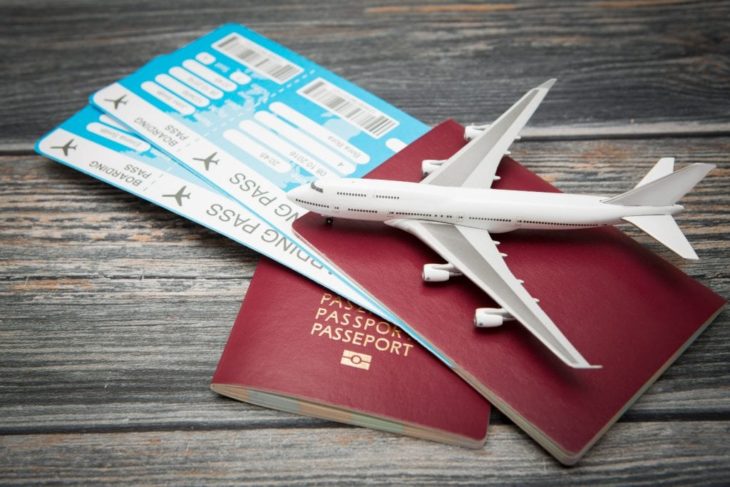Thinking about going on vacation sure is fun, but planning one isn’t as peachy. Vacation planning can be so stressful that many travelers pay a travel agent to do the work for them. That much stress shouldn’t be a factor when trying to get away.
There are dozens of tips, tricks, and hacks you can use to make vacation planning easier. However, fewer people take into account the preparation you should do before planning even begins. This article will walk you through some steps you can take now to make future vacation planning much less of a burden.

Source: empireflippers.com
Contents
1. Get Your Finances in Order
Vacations aren’t always cheap, especially if you’re dreaming of distant beaches and exotic locations. It’s always better to get your finances in order before planning your next vacation rather than trying to figure things out along the way. A poorly timed or planned vacation can really strain your bank account, leading to a lot of unnecessary stress and worry.
How is your budget looking? Are you properly planning your expenses in order to save for an upcoming vacation? If you’re barely making ends meet or are struggling with debt, you’ll need to make some financial adjustments before planning a vacation.
Luckily, there are plenty of tools that can help you get on top of your finances. For example, a debit card app like the one from Chime allows you to track spending and can help you stick to a budget. With this app, you can also set up automatic savings to gradually build that 2024 vacation fund.

Source: lonelyplanet.com
2. Square Things Away at Work
Taking a vacation involves asking for time off from work. Unless you plan on bringing some assignments with you, this means pausing your projects and responsibilities for the duration of your trip. While this is part of the beauty of a vacation, residual work stress can follow you while you travel and ruin the experience.
If possible, try to work as far ahead as possible. If you’re getting in front of your project task deadlines, you’ll have a great head start when you finally decide to take a vacation. There will be no last-minute rushing and less guilt from taking off while there’s still a mountain of work to be done.
Of course, you won’t necessarily get everything done before you leave. You can’t hurry up handoffs from others, for instance, nor can you anticipate every need a client may have in your absence. That’s why you have co-workers.
Determine which of your responsibilities can be delegated to others and provide clear instructions for task completion and handoff. And then step up for your colleagues when it’s their turn to take some well-deserved time off. When you get your work affairs in order before planning a trip, you can fully enjoy your time off the clock.

Source: asaptickets.com
3. Get Your Documentation Lined Up
There’s a surprising amount of paperwork that goes into a successful vacation. Unless you stay relatively close to home, there’s some documentation you’ll need to have on hand and keep up-to-date.
For starters, if you ever plan to leave the country, you’ll need a passport. Passports are taking an unusually long time to be made, so plan ahead if you need to. If you’re flying domestically, a state-issued ID will suffice until May 3, 2024, when the Transportation Security Administration will begin requiring a REAL ID.
Other documentation to keep updated includes insurance cards, contact information, and vaccination details, where applicable. The last is especially critical as the COVID-19 pandemic hangs on. Various countries, transportation and lodging providers, and entertainment venues are requiring proof of vaccination or negative test results before allowing entry. Stay on top of documentation requirements, and you’ll skip the stress of not having up-to-date information when you need it.

Source: utahdebtcare.com
4. Build Up Rewards Points
When budgeting for your next vacation, don’t overlook rewards points that can make your vacation funds go further. When you can save on flights or hotel stays by using rewards points, your trip cash can go toward meals, attraction tickets, and souvenirs. Best of all, you can accrue rewards points all year long. By the time you are planning to take a trip, you’ll have a bunch of credits you can cash in.
Most people amass rewards points by using a credit card. By making purchases, you can earn travel miles for your next vacation. Just be sure to make smart decisions with your credit card so as not to get caught up in debt. When used wisely, a credit card can offer huge benefits for the thrifty traveler.
There are other ways you can build up rewards points as well. If you travel for work, become a member of the loyalty programs offered by the airlines and hotel chains you use. Even though you’re not footing the bill, the points will be added to your account for future personal use.

Source: forbes.com
5. Prep Your Home for Your Absence
Even if you don’t know exactly when you’re taking your next trip, it’ll be easier to prepare if your home is secure. After all, you’ll be leaving it alone for days or even weeks at a time. A few updates will keep your mind at ease while you’re away.
Start off by checking on your smoke alarms. A house fire is certainly a worst-case scenario, but you can prevent a lot of damage with an updated smoke alarm system. Other safety precautions to take include cleaning out lint traps, clearing gutters, and applying pest control treatments around your foundation.
Smart home products are also worth looking into. A video doorbell like Nest or Ring will monitor people who come to your door and thus deter potential burglaries. There are also motion-sensor exterior lights and locks you can engage with your smartphone. These items will be helpful whether you’re on vacation or not.
Even if you’re not planning on taking your next vacation until well into 2024, there are steps you can take now. Doing some advance legwork will make it easier to plan any upcoming trip, whether it’s a nearby weekend getaway or a weeklong Caribbean cruise.
